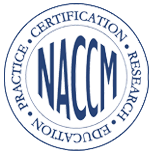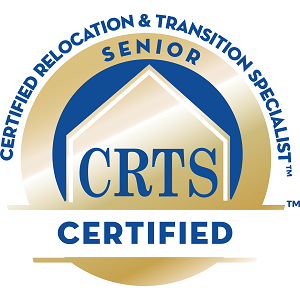Skin Cancer Treatment Options for Seniors
As we age, our skin becomes more vulnerable to damage and diseases, including skin cancer. Seniors are particularly at risk for skin cancer due to a lifetime of exposure to the sun and other harmful environmental factors. Unfortunately, many seniors may not take skin cancer as seriously as they should, despite the potential consequences of leaving it untreated.
That being said, various treatment options are available for seniors with skin cancer, ranging from surgery to radiation. Seniors should discuss the best treatment options with their doctor and ensure they understand all of the potential risks and benefits.
Understanding Skin Cancer Treatment Options
Skin cancer is the most common type of cancer in the United States, especially among seniors. As such, seniors need to understand the different treatment options available to them, as well as the potential benefits and risks of each option.
Surgery
Surgery is often the first line of defense against skin cancer. There are two main surgical options available: excision and Mohs surgery. Excision involves removing the cancerous tissue along with a margin of healthy tissue. Mohs surgery is a specialized technique that involves removing the cancerous tissue layer by layer until only healthy tissue remains.
Surgery can be an effective treatment option for seniors with skin cancer, especially if the cancer has not spread to other parts of the body. Additionally, surgery can be a good option for seniors who may have difficulty undergoing other types of treatments, such as chemotherapy or radiation therapy.
However, surgery does carry some risks for seniors, including the potential for complications during or after the procedure. Seniors may also require a longer recovery period after surgery and may have a higher risk of developing infections or other complications.
Radiation Therapy
Radiation therapy is another treatment option for skin cancer, particularly for seniors who are not good candidates for surgery due to their age or other health conditions. Radiation therapy uses high-energy radiation to kill cancer cells and shrink tumors.
There are two main types of radiation therapy: external beam radiation therapy (EBRT) and brachytherapy. EBRT involves using a machine to deliver radiation to the affected area from outside the body, while brachytherapy involves placing small radioactive seeds directly into the cancerous tissue.
The benefits of radiation therapy include the ability to target cancer cells with precision and the ability to perform the procedure without surgery. At the same time, there are potential side effects associated with radiation therapy, including skin irritation and fatigue. In some cases, radiation therapy can also cause long-term damage to the skin or other surrounding tissues.
Immunotherapy
Immunotherapy is a relatively new approach to treating skin cancer that involves using the body’s own immune system to fight cancer cells. This type of treatment can be particularly effective for seniors with advanced skin cancer who cannot undergo surgery.
For seniors who cannot undergo surgery or other treatments, immunotherapy can be a viable option for treating skin cancer. This is because immunotherapy is less invasive than surgery and can be administered on an outpatient basis. However, not all seniors are good candidates for immunotherapy, and there are potential risks associated with this treatment, including skin rash and fatigue.
Skin Cancer Treatment Options for Seniors: Factors to Consider
When selecting a treatment option for skin cancer, seniors and their doctors should consider several factors. One of the most important factors is the size and location of the tumor. If the tumor is small and on the surface of the skin, surgery or radiation therapy may be the most effective option. However, if it is large or in a sensitive area, specialized treatments such as Mohs surgery or immunotherapy may be necessary.
The type and stage of the cancer are also crucial factors. Different types of skin cancer may require different treatments, and the stage of the cancer can determine whether surgery or more aggressive treatments like chemotherapy or immunotherapy are necessary. For instance, if the cancer has spread to other parts of the body, surgery alone may not be enough.
Finally, seniors’ age and overall health must be considered when selecting a treatment option. Older adults may be more prone to complications from certain treatments, and their general health may affect their ability to undergo more aggressive treatments such as surgery or radiation therapy. In some cases, observation or less invasive options such as topical treatments may be the best approach for seniors who cannot undergo more aggressive treatments.
Skin Cancer Treatment Options for Seniors: Possible Side Effects
While treating skin cancer in seniors can be effective, there are potential side effects associated with treatment that must be taken into consideration. These side effects can vary depending on the type of treatment used and can affect seniors in both the short and long term.
Short-term Effects
Short-term side effects of skin cancer treatment include skin irritation, fatigue, and nausea. Seniors may also experience increased sensitivity to the sun and may need to take extra precautions when spending time outdoors. Managing these symptoms may involve rest, medications, or modifications to their daily routine. Seeking support from family, friends, or healthcare providers can also help seniors cope with these short-term side effects.
Long-term Effects
Long-term side effects of skin cancer treatment may include an increased risk of developing secondary cancers and chronic health conditions. It’s important for seniors to discuss these potential long-term effects with their doctor and to undergo regular screenings to monitor their overall health.
To reduce the risk of long-term effects, seniors should take steps to protect their skin from further damage by wearing protective clothing, avoiding excessive sun exposure, and maintaining a healthy lifestyle. Regular check-ups with their healthcare provider can also help identify any potential long-term effects early and enable prompt treatment.
How a Care Manager Can Help
Overall, seniors who are diagnosed with skin cancer have a variety of treatment options available to them. Surgery, radiation therapy, and immunotherapy are all effective options, but each option comes with its own unique benefits and risks. Seniors and their doctors should carefully consider their options and work together to develop a treatment plan that is best suited for their individual needs and health conditions.
Throughout the treatment process, seniors and their families may find it helpful to work with a senior care manager. Aged care managers can help seniors navigate the healthcare system, coordinate appointments and treatments, and provide emotional support and guidance. Reflections Management and Care offers various services for seniors and their families, including care management, home care, and geriatric care consulting. Contact us today to learn more about how we can help you and your loved ones manage skin cancer and other health issues.














